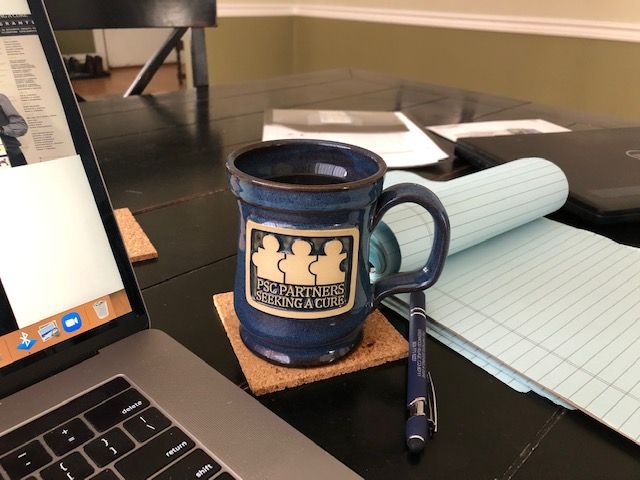
PSCers Often Have An Itch to Scratch
As many PSCers and their caregivers know, itching, known as pruritus, is a big issue for those affected by this disease. The bile acid buildup from PSC is believed to cause this itching, and suggestions about ways to deal with this problem are sometimes confusing. As a pharmacist and the mother of a double-transplanted PSCer, I am well-aware of the issue. In this blog, I hope to share ideas PSCers and their caregivers can discuss with their doctors to help manage the intensity of itching and minimize skin damage from scratching.
Pruritus
The treatment of itching related to PSC is not the same as itching from mosquito bites or allergic responses and should be managed by hepatologists and dermatologists, especially when it becomes so severe that scratching causes skin damage. The damage can lead to infection, which requires antibiotics and can affect transplant status. Keeping skin moisturized and healthy with vigilant self-care may help patients cope with itching. Doctors should be involved in development of treatment plans to help optimize the strategy and minimize discomfort.
Self-Care
My daughter’s journey with itching is a balancing act of moisturizing and massaging guided by consultation with her doctors. We have found that the best treatment for her is twice a day lengthy massaging with ceramide-containing cream and once daily massaging of an ointment, preferable after a short, cool shower. She takes an antihistamine at bedtime to both minimize daytime episodes of encephalopathy and encourage the nighttime sleep cycle.
Which Lotions are Best?
Ointments are occlusive, meaning they hold moisture in the skin, but they often feel greasy. Creams absorb into the skin and usually do not leave the greasy feel. Antihistamine-containing creams and ointments, such as diphenhydramine or hydrocortisone, can be purchased over the counter and might provide limited relief. However, they do not alter the source of itching, the bile acids. Antihistamines also may cause drowsiness, and, if the PSCer is experiencing any hepatic encephalopathy, they might contribute to this problem. The least sedating antihistamines are cetirizine and loratadine.
There are some prescription-only steroid products for the skin, but, keep in mind, long-term use of topical steroids on the skin can have harmful effects. Therefore, depending on skin condition, doctors need to help determine the risks and benefits of topical steroids. Scratching, which can even occur during sleep, might lead to inflammation and skin breakdown and make some topical steroid use suitable to treat the inflammation. Topical steroid use over long term can be harmful, so, again, these should be used only under a doctor’s care.
Topics for Discussion with Physicians
Medications, including cholestyramine, are bile acid sequestrants that bind bile acids in the gastrointestinal tract to help eliminate them. While they often help, these drugs can also bind and prevent absorption of some medications. So, it is imperative that PSCers seek medical advice about timing and dosage amount relative to other medications.
Some alternate medications that may also help include the antibiotic rifampin, as well as the medicines naltrexone and naloxone. Additionally, there are prescription-only drugs from different classes with side effects beneficial for the discomforts of PSC-related itching, such as doxepin, sertraline, and paroxetine, but these may cause dryness and/or drowsiness. These medications have other limitations, as well. For example, if patients take pain management opioids, the naltrexone and naloxone would be counter-productive and not recommended. The PSCer’s liver disease status, such as bilirubin level or clotting factors, might make rifampin an inappropriate choice. Any intolerance to the side effects of sertraline or paroxetine might make these options contraindicated, as well.
Since PSCers often take many medications, drug interactions may complicate the addition of anything new. Therefore, PSCers and their caregivers must work closely with medical providers and pharmacists to find the best options.
Light Therapy
Dermatologists may recommend a specialized light therapy, which is only available through the physician. This is different than tanning, and involves very short treatments with a filtered light therapy (UVA and UVB) at the doctor’s office. Some medications cause light sensitivity, so be sure to bring a complete list of medications to the dermatology appointment. My daughter felt that, over the months before transplant, the light therapy with dermatology provided some relief.
Every case of PSC-induced pruritis is different. Please be sure to check with your doctor before adding or removing anything from your skin-care or medication routine. If you have other suggestions for managing pruritis, comment below.





